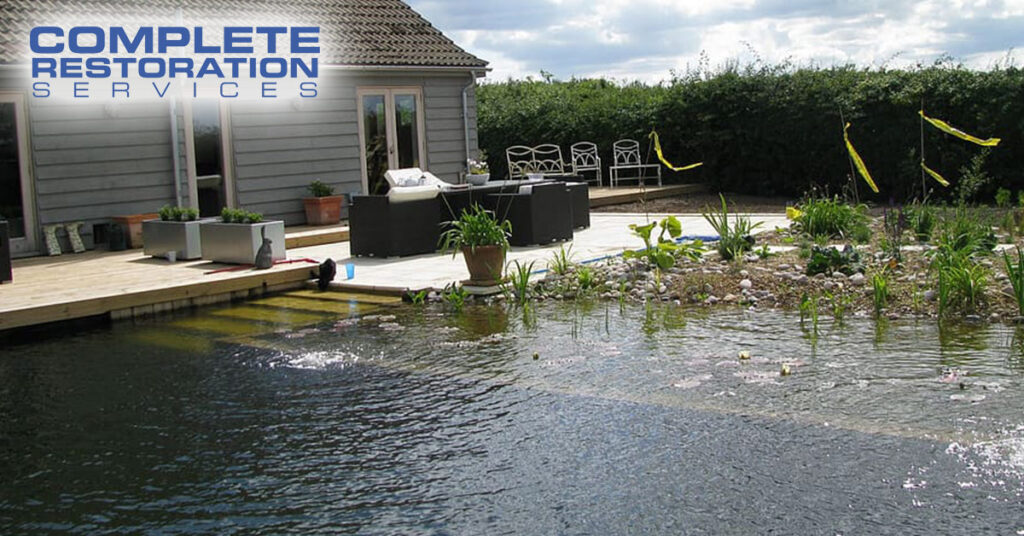Are you looking to resolve a water damage conflict in a rental unit?
Water damage can have costly consequences. The ruined wallpaper, furnishings, and personal items rack up a considerable bill. When this happens in a private residence, the next steps are clear for most homeowners.
But water damage in a rental property can spark disputes and conflicts. Tenants and landlords alike often are not aware of which party is directly responsible for incurring the expenses.
Your number one solution to exit these stressful situations is acquiring the basic principles of water damage responsibilities in rentals. After reading this guide from Realty Management Associates in Boise, you’ll know what to do in the aftermath of leaky pipes or overflowing sinks.
The Starting Point: Water Damage in Rental Properties

Water damage isn’t always as straightforward as flash flooding. Sometimes the onset of damage is slow. This is exactly why tenants and landlords have to regularly check the property for any early signs of damage.
Discoloration. The intruding water may turn indoor surfaces gray or brown. The former happens when the colors leak out of the materials and the latter results from paint surfactants’ reaction to water exposure.
Dropping indoor temperature. The rental’s walls could slowly start to dampen, thereby removing more and more heat from inside the property. For instance, the A/C unit may begin working harder to achieve the same optimal room temperature.
Strange smell. Water leaks are one of the main drivers for mold growth. A typical giveaway of mold issues is a damp odor that is often likened to the smell found in basements.
Texture changes. Can you spot the formation of warps, bubbles, or cracks? Any changes in the surface textures inside the rental property may indicate a problem with water leaks.
When do landlords hold responsibility for water damage?

Every landlord’s duty is ensuring the habitability of their rental property. When the rooms acquire enough water damage, the whole property may cease to be fit for everyday life.
Landlords hold responsibility when these damages arise because of their own neglect of repair and maintenance demands. In such cases, tenants hold no responsibility for the outcome. They could even sue the landlord because of gross negligence.
Here is a practical example of a landlord’s responsibility. When a rental property has burst pipes, that the landlord likely has to incur the associated expenses. The landlord didn’t take action at the right time and neglected basic upkeep and repair duties. That’s how the situation could even grow into a plumbing emergency.
When do tenants hold responsibility for water damage?

Tenants are accountable for their behavior in the rental property. Tenants are responsible for paying the expenses when their behavior, including misuse and negligence, leads to actual water damage.
A very common water emergency scenario in rental properties involves someone forgetting to turn off a kitchen or bathtub faucet. Under some circumstances, this lapse in thinking ends up creating a major flooding event.
Sometimes the tenant’s actions may be subtler. For example, flushing items prohibited to discard in the toilet could lead to a serious blockage in the long run. This blockage may consequently bring about flooding and water damage in the rental unit.
What are the principles of water damage dispute resolution?
Reality is messier than scenarios on paper. Just take an example where the landlord is responsible for the water damage due to negligence of the maintenance needs. Tenants still have to actively take steps for reducing the resulting damages.
Whenever a water emergency occurs, the tenant has to immediately let their landlord know about the situation. It’s important that renters move personal items away from the intruding water.
Many insurers won’t provide full coverage for personal property if it turns out that the tenant didn’t actively mitigate the impact of the emergency. This is why renters always need to take a proactive approach.
The Bottom Line: Water Damage in Rental Properties
Water emergencies and the ensuing damages spark heated disputes between landlords and tenants. These conflicts often focus on who is exactly responsible for the water damage in a rental property.
These are our top suggestions for dealing with water damage in a rental:

- Draft a lease agreement that covers responsibilities and issues regarding water damages. Create a detailed overview that shows the responsibilities of both sides to the contract.
- As a landlord, you could require your tenants to get renter’s insurance. This insurance plan protects their personal belongings. Depending on your state and locality, this may or may not be a legal option. Research the regulations prior to including the insurance requirement as a clause to your lease.
- The type of emergency behind the water damage isn’t that important. The crucial fact is what caused the emergency and the resulting damage in the first place. Getting an adequate answer to this question uncovers who is responsible for absorbing the associated expenses.

